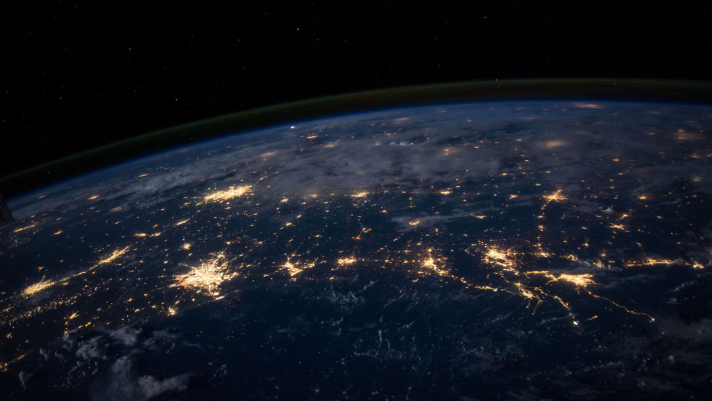The Right to Peace: Space Security
The theme for the 2018 International Day of Peace (Friday, Sept. 21) is The Right to Peace – The Universal Declaration of Human Rights at 70.
The Universal Declaration of Human Rights was adopted by the United Nations General Assembly in Paris on Dec. 10, 1948, to recognize “the inherent dignity and equal and inalienable rights of all members of the human race.”
To honour this year’s theme Project Ploughshares will present, each day this week, an aspect of the work we do, work that is rooted in the belief that every human being has a right live in peace and security.
Read Monday’s post on Nuclear Disarmament
Read Tuesday’s post on Killer Robots
Read Wednesday’s post on Forced Displacement and Migration
Space Security is the secure and sustainable access to and use of space and the freedom from space-based threats.
Currently free of weapons and preserved for peaceful purposes, outer space is unique.
With over 1,800 operational satellites and counting, the relative stability and security of this environment has enabled a profusion of space-based applications, from communications, transportation, and banking, to search-and-rescue operations, weather forecasting, and arms control verification. The world is now dependent on outer space to support everyday life and security on Earth, but such use cannot be taken for granted.
The key challenge is to maintain an environment in which peaceful applications continue to be used while keeping outer space from becoming a potential battlefield.
HUMAN RIGHTS AND SUSTAINABLE DEVELOPMENT
The international space community gathered from June 18-21 in Vienna, Austria, to celebrate the 50th anniversary of the first global Conference on the Exploration and Peaceful Uses of Outer Space (UNISPACE).
Under the auspices of the Committee on the Peaceful Uses of Outer Space (COPUOS) and the UN Office of Outer Space Affairs (UNOOSA), the UNISPACE+50 conference emphasized seven thematic priorities related to promoting enhanced international collaboration in outer space, the mobilization of space technology and applications for socioeconomic development, and more effective space governance. Intended as a blueprint for a Space 2030 Agenda on how to better utilize space assets to achieve the 2030 Agenda for Sustainable Development, this global summit was clearly focused on Earth’s inextricable link to space and how those links can help to preserve life on our planet.
Those of us who work in fields related to outer space look to the world beyond Earth with imagination, hope, and ambition. UNISPACE+50 forced us to refocus on Earth, by showing the many ways in which the future of all life on Earth in the next decade is inextricably connected to human activities in outer space. As former American astronaut and current UN Ambassador for Space Scott Kelly asserted, “if we’re going to survive” as a species, “we need to survive on Earth.” Despite Earth’s many challenges, he stated, it’s far easier to take care of this planet than to build a new one.
MORE INFORMATION
Outer space: Crowded, congested, and contested
Uncharted territory in outer space
Trump just announced the creation of a Space Force: Should we be worried?
America First: What the U.S. National Security Strategy Means for arms control in outer space
Under Stress: Space Security in 2017
Outer space: New and old challenges

